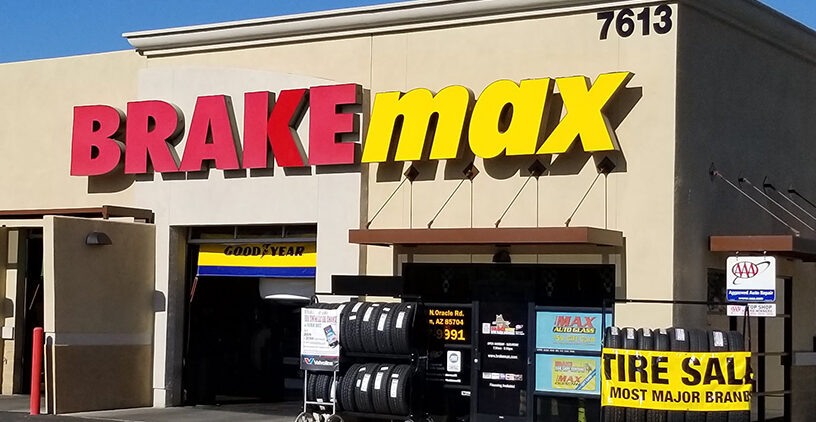Types of Motor Oil: What Are They and What Does My Car Need?

As a driver in Tucson, Arizona, you already know why you need oil change service on a regular basis. Your car can’t do its job without clean motor oil — this fluid keeps your engine fully lubricated and cooled while also improving your vehicle’s overall performance. Oil changes may not be the only service your car needs, but the importance of this task can’t be overstated.
Still, getting the perfect oil change for your car might not be as simple as you think. Before you can set up your next oil change in Tucson, you’ll have to choose between a few different oil types — and this decision goes beyond simply picking conventional or synthetic oil. Keep reading for the information you need to determine the best kind of motor oil for your vehicle.
What Are the Major Oil Types?
In casual conversation, people tend to say there are two basic types of oil: conventional and synthetic. While these are the most popular options on the market, you should consider all four major oil types:
Conventional Oil
Conventional oil is a natural type of crude mineral oil, but it is also enhanced for improved performance. It goes through a partial refinement process to increase its viscosity and protection.
Conventional oil is also called “standard oil,” and it’s still the most commonly used type of motor oil in the world today. It’s not hard to see why, either — on paper, this is the most budget-friendly option for your vehicle. The catch is that conventional oil needs to be changed more often than other varieties, meaning you won’t save as much as you might assume.
Synthetic Oil
Unlike conventional oil, synthetic oil is a highly refined option made in labs and factories. Thanks to the closely controlled manufacturing process involved in its creation, it can meet higher performance standards than its counterparts.
Compared to a conventional oil change, a full synthetic oil change delivers enhanced engine protection and greater longevity. Of course, these benefits come with a higher price tag. You can expect to pay around $20 to $40 more for synthetic oil (though its longer service life can help offset this).
Synthetic Blend Oil
For some drivers, choosing between conventional and synthetic oil might seem impossible. The good news is that you might not have to choose. If you’d like a balance between the perks each of these varieties delivers, synthetic blend oil might be right for you.
When you purchase synthetic blend oil, you’ll get better engine protection than conventional oil can provide on its own at a lower cost than a full synthetic oil change. Your new oil will also last longer than purely conventional oil, though it will have a shorter service life than purely synthetic oil.
High-Mileage Oil
If you drive a relatively new car, the three oil types listed above should be enough to cover your bases. However, none of these oil varieties are formulated with the needs of older vehicles in mind. For that, you’ll need high-mileage oil, which is explicitly created to protect engines that have traveled more than 75,000 miles.
High-mileage oil goes through a refinement process similar to that of synthetic oil. The main difference lies in the cleansers, seal conditioners, viscosity modifiers, and anti-corrosion agents added to high-mileage oil. These additives help high-mileage oil deal with the corrosion and burn-off commonly seen in aging engines.
Know When You Need a Car Oil Change
It’s essential to know when it’s time for your vehicle to receive oil change service. However, that’s not the only thing you’ll need to know when preparing for this routine maintenance task. On top of that, having a reliable oil change service schedule in place for your vehicle is crucial.
To start this process, look no further than your vehicle’s user manual. It will contain recommendations on scheduling oil changes, which could fall anywhere from every 3,000 to 10,000 miles under normal driving conditions.
The type of oil you choose will also affect your oil change schedule. Generally speaking, you’ll need to get oil changes more frequently with conventional oil and less frequently with synthetic oil. Additionally, your oil’s lifespan could be shortened by driving habits such as:
- Stop-and-go traffic
- Regular short trips
- High-mileage driving
- Intense Arizona heat
- Regularly towing/hauling heavy loads
Get Trustworthy Oil Change Service
By now, you should know what oil variety you want and how often you should set up oil changes. That means there’s just one more piece of the puzzle: figuring out what Tucson auto shop you’ll entrust with your oil change service needs.
At BRAKEmax Tire & Service Centers, we employ ASE-certified mechanics capable of providing any service your vehicle needs — including a car oil change. We also offer online coupons, multiple locations in the Tucson area, and the peace of mind that comes with visiting a shop that’s been a community fixture since 1997.









